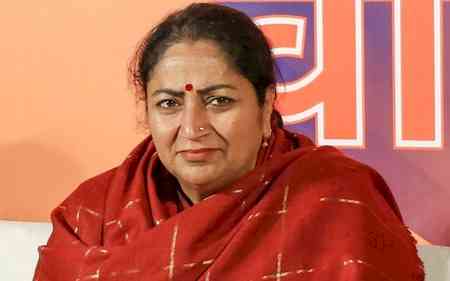IANS gets ChatGPT to report; its story on India & AI is ready in 30 secs
ChatGPT is one of the trending experimental uses artificial intelligence, using its powers to write report and collate information.

ARUL LOUIS
New York, May 7 (IANS) ChatGPT is one of the trending experimental uses artificial intelligence, using its powers to write report and collate information.
In the IANS New York office, we have been experimenting with ChatGPT and one of the tasks we set for it as a test is to "write a report on the state of artificial intelligence in India and how India can gain from it and the strategies it should adopt for it".
It came up with a comprehensive report within 30 seconds. It sounds comprehensive and comprehensible. (It has not completely fact-checked it). Readers can evaluate its powers, accuracy and presentation.
Here it is (and note again, these are not IANS staff writing, but what was "written" by the artificial intelligence-based application ChatGPT.)
"Introduction:
"Artificial intelligence (AI) is rapidly transforming the global landscape, and India is no exception. The Indian government has recognized the potential of AI to drive economic growth and improve social welfare. As a result, India has developed a national strategy for AI to encourage innovation, investment, and development of AI technologies. In this report, we will examine the state of AI in India and discuss strategies that India can adopt to gain maximum benefits from AI."
"State of AI in India:
"India has emerged as a significant player in the global AI landscape. In 2020, India was ranked as the third-largest AI startup ecosystem in the world, behind only the United States and China. India's AI startups are primarily focused on developing AI solutions for healthcare, education, finance, and retail sectors.
"India has also made significant investments in AI research and development. The Indian government has established several research institutions such as the Indian Institute of Technology (IIT) Delhi and the Indian Institute of Science (IISc) Bangalore, which have made significant contributions to AI research. Additionally, India has also set up AI research labs such as Microsoft Research India and IBM Research India.
"India's government has also launched several initiatives to promote AI development. In 2018, the government launched the National AI Strategy, which aims to leverage AI to drive economic growth and improve social welfare. The strategy identifies five key areas of focus: healthcare, agriculture, education, smart cities, and infrastructure."
"Opportunities for India:
"AI has the potential to transform several industries in India, including healthcare, education, agriculture, and finance. Here are a few ways India can gain from AI:
"Healthcare: AI can improve healthcare outcomes by enabling accurate diagnosis, predicting diseases, and developing personalized treatment plans. AI-powered telemedicine platforms can also make healthcare accessible to remote and underserved populations.
"Agriculture: AI can be used to optimize crop yields, predict weather patterns, and monitor soil health. AI can also help farmers make informed decisions about crop selection, irrigation, and fertilization.
"Education: AI-powered learning platforms can personalize education to the individual needs of each student, providing customized learning experiences. AI can also help identify students who are at risk of falling behind and provide them with additional support.
"Finance: AI can be used to automate financial processes, detect fraud, and identify investment opportunities. AI-powered chatbots can also provide personalized customer service and support."
"Strategies for India:
"To gain maximum benefits from AI, India needs to adopt a multi-pronged strategy that includes the following elements:
"Investment in research and development: India needs to continue investing in AI research and development to stay ahead of the curve. The government should provide funding for AI research institutions and encourage collaboration between academia and industry.
"Skill development: India needs to develop a skilled workforce that can develop, implement, and maintain AI technologies. The government should launch training programs to upskill the existing workforce and provide education and training to students.
"Regulatory framework: India needs to establish a regulatory framework that promotes innovation while also ensuring data privacy and security. The government should establish clear guidelines for data protection, AI ethics, and accountability.
"Industry collaboration: India needs to encourage collaboration between industry, academia, and government to drive AI innovation. The government should establish platforms that enable industry and academia to collaborate on research and development projects."
"Conclusion:
"AI has the potential to drive significant economic growth and improve social welfare in India. To gain maximum benefits from AI, India needs to adopt a multi-pronged strategy that includes investment in research and development, skill development, regulatory framework, and industry collaboration. With the right strategies in place, India can emerge as a global leader in AI and drive sustainable economic growth."
(Arul Louis can be contacted at [email protected] and followed at @arulouis)


 IANS
IANS 










